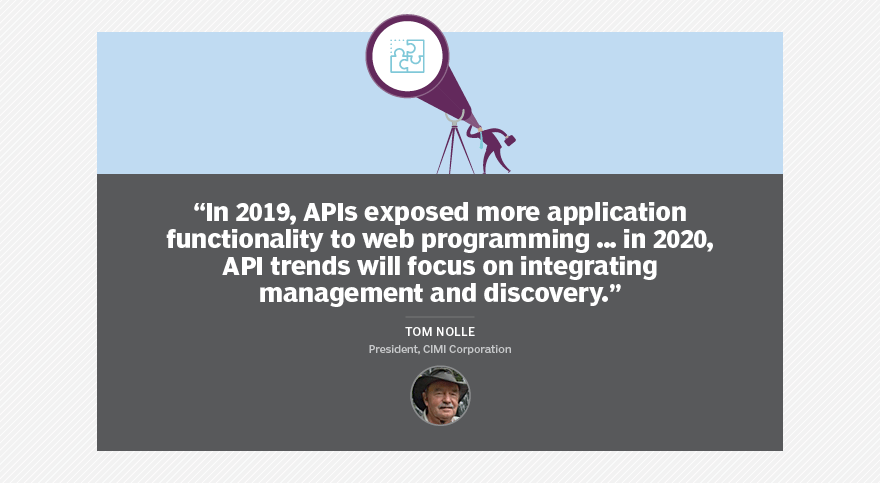5 predictions for 2020 software architecture trends
API management is transforming because APIs are transforming.
API management has historically focused on the boundary between web programming and core applications. It defines which interfaces websites and mobile apps use to obtain and update information. Changes in application development are broadening the boundary that API management addresses. This trend is part of a larger movement in the software development lifecycle, where ecosystems replace discrete tools.
Web applications are gaining interactivity, moving from simple UI front ends to actually being an interactive part of the transactions in business applications. In 2019, APIs exposed more application functionality to web programming, in large part because there were more of them. That means that in 2020, API trends will focus on integrating management and discovery.
Low-code software development -- on the rise in enterprises to enable more application builds even with a limited pool of professional developers -- created another API trend. Functional APIs exposed by business applications must come under API management. While low-code and no-code products focus most on the GUI, they offer access to databases and deep APIs within the application. API management tools must accommodate these database and internal API interactions in the future.
As developers enhance interactivity, it will shift the structure of the APIs themselves. We already see a trend of JSON APIs as a means to introduce more programming flexibility into webpages. In the future, expect APIs to move beyond synchronous models to publish-and-subscribe and event-based APIs, reflecting the shift of software to microservices and serverless computing.
The deep API and event-API trends demand tighter security integration with API management, higher performance levels and improved scalability for the services/resources that APIs expose. Given that many of these requirements are already handled by service mesh technology, API management and service mesh will ultimately harmonize, making API management a growing part of both service mesh technology and the overall Kubernetes container management ecosystem. While this convergence of technologies may take several years to complete, it will start, convincingly, in 2020.
Tom Nolle is the president of CIMI Corporation, a technology consultancy.






